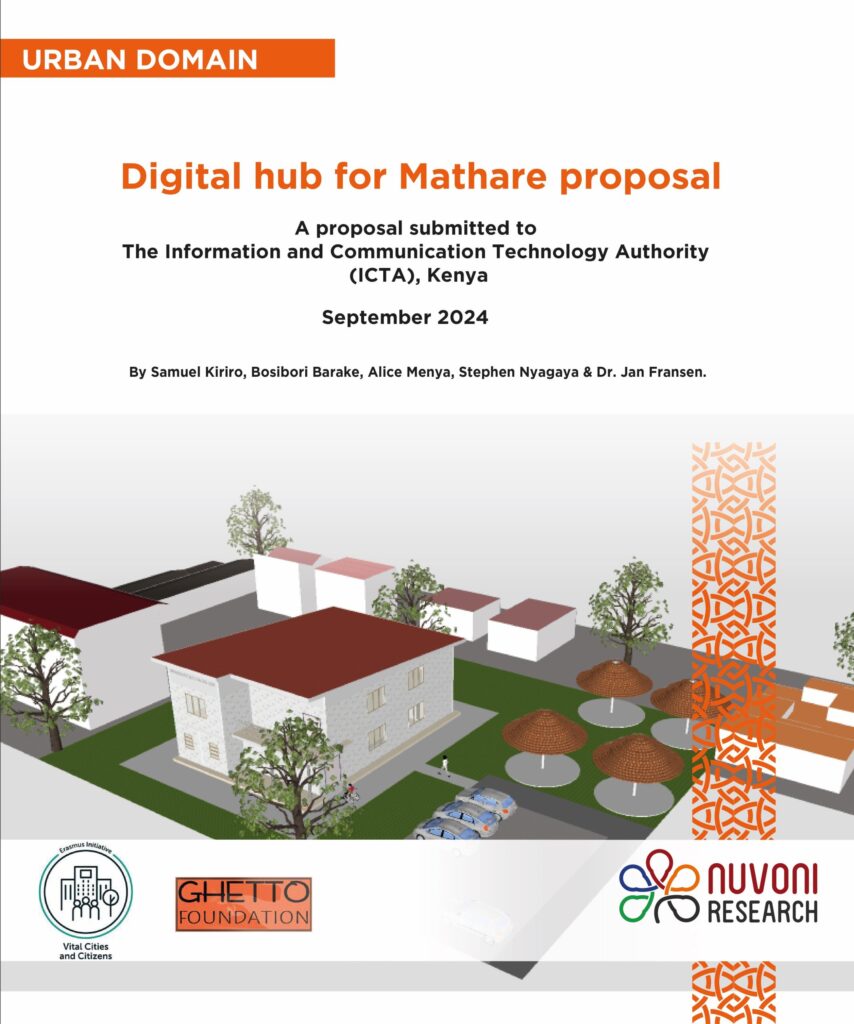
Digital Hubs Proposal to ICTA
Information Communication Technology (ICT) has been hailed for its ability to transform cities. Global institutions, governments and scholars discuss the potential of using ICT in creating employment, increasing social capital, and providing reliable infrastructure and basic services. However, this potential is counteracted by digital, spatial and social exclusion in cities. These exclusions are expressed by the concept of digital divide where a gap exists between the haves and haves not in terms of access to and use of different forms of information and communication technology. In Kenyan cities, these forms of exclusion are evident in informal settlements where residents have poor access to information, infrastructure and services. In Mathare Informal Settlement in Nairobi, the exclusion is evidenced by the limited access to digital devices, limited access to affordable and reliable internet options, low digital literacy levels, and inadequate digital spaces for working and other livelihood opportunities. Our studies show that some digital platforms are nevertheless widely used and misused in Mathare, impacting on the quality of life. Other platforms are hardly used at all.
Cities use various efforts to address unequal digital access and availability. ‘Digital hubs’ also known as ‘telecentres’ or ‘community learning centres’ (CLC) are places where the community can access internet and get other digital services. These spaces are mostly used to offer innovation support and access to technical expertise in enterprise development. In addition to internet-related services, they are also used to foster community and personal development.
This proposal provides a comprehensive description of the form and design that digital hubs should adopt in Mathare informal settlement. The case is built following a critical analysis of the findings of the study on “Digital employment and training centres in informal in settlements’ piloted in Mathare. A study interviewing 46 residents in Mathare in 2021 mapped digital needs, while the above study interviewed 32 residents and local leaders, engaged in two co-creation workshops and interviewed officials from the Information Communication Technology Authority (ICTA). The proposal represents a doable compromise between the needs and demands of residents and the possible support ICTA can offer. Processes of co-creation aimed for community and political buyin.
- Authors
- Samuel Kiriro
- Bosibori Barake
- Alice Menya
- Stephen Nyagaya
- Dr. Jan Fransen
- Publication Date
- September 2024

Physical Address
No. MK088, Ushindi West Avenue,
Mukuyu Rd (Mukuyu West Wing), Thome 1
Nairobi, Kenya
Organization
Subscribe for newsletter & get news, events and publications updates
Contact Us
Office Tel: (+254) 20 8009928 |
Mobile: (+254) 706 324 467
© 2026 Nuvoni Research

